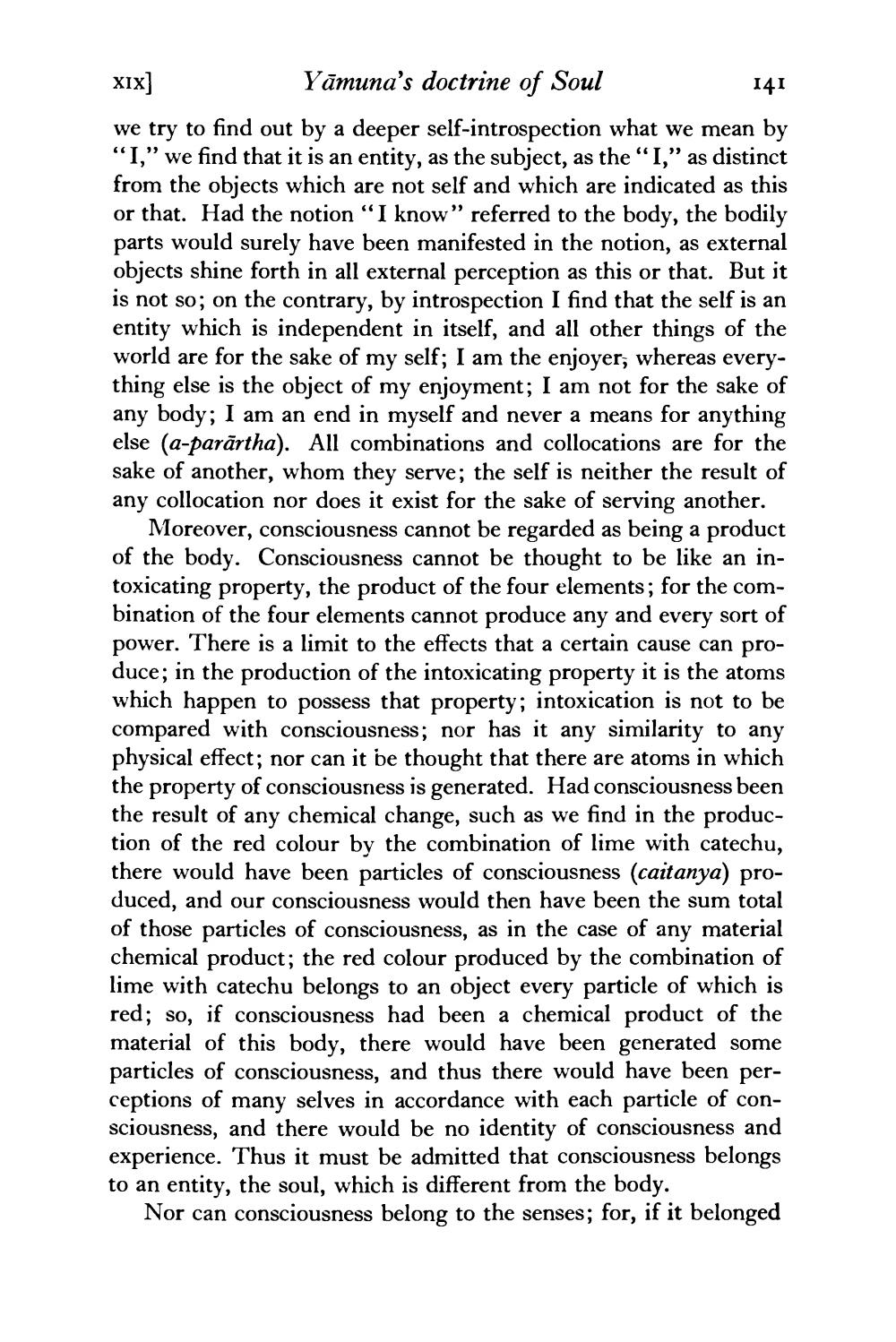________________
XIX Yāmuna's doctrine of Soul
141 we try to find out by a deeper self-introspection what we mean by “I,” we find that it is an entity, as the subject, as the “T,” as distinct from the objects which are not self and which are indicated as this or that. Had the notion “I know” referred to the body, the bodily parts would surely have been manifested in the notion, as external objects shine forth in all external perception as this or that. But it is not so; on the contrary, by introspection I find that the self is an entity which is independent in itself, and all other things of the world are for the sake of my self; I am the enjoyer; whereas everything else is the object of my enjoyment; I am not for the sake of any body; I am an end in myself and never a means for anything else (a-parārtha). All combinations and collocations are for the sake of another, whom they serve; the self is neither the result of any collocation nor does it exist for the sake of serving another.
Moreover, consciousness cannot be regarded as being a product of the body. Consciousness cannot be thought to be like an intoxicating property, the product of the four elements; for the combination of the four elements cannot produce any and every sort of power. There is a limit to the effects that a certain cause can produce; in the production of the intoxicating property it is the atoms which happen to possess that property; intoxication is not to be compared with consciousness; nor has it any similarity to any physical effect; nor can it be thought that there are atoms in which the property of consciousness is generated. Had consciousness been the result of any chemical change, such as we find in the production of the red colour by the combination of lime with catechu, there would have been particles of consciousness (caitanya) produced, and our consciousness would then have been the sum total of those particles of consciousness, as in the case of any material chemical product; the red colour produced by the combination of lime with catechu belongs to an object every particle of which is red; so, if consciousness had been a chemical product of the material of this body, there would have been generated some particles of consciousness, and thus there would have been perceptions of many selves in accordance with each particle of consciousness, and there would be no identity of consciousness and experience. Thus it must be admitted that consciousness belongs to an entity, the soul, which is different from the body.
Nor can consciousness belong to the senses; for, if it belonged




